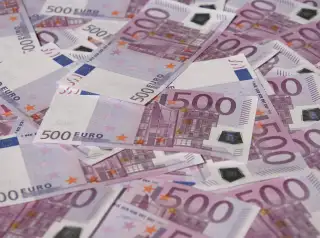Why Europe Just Dropped the €500 Bill

The European Central Bank announced on Wednesday it will phase out €500 notes. Depending on who you ask, the controversial move will either make life harder for money launderers and other criminals or set a dangerous precedent for government overreach and the infringement of civil liberties.
Those are the two schools of thought in the debate, which the ECB had been weighing for some time. The recent terror attacks in France and Belgium, however, brought new urgency to the situation. Now large bills will be phased out by the end of 2018. The ones that remain in circulation will still be legal tender, but the ECB will stop printing new ones to replace old, worn or damaged notes, according to the New York Times,
Big denominations are popular with criminal groups like terrorist cells and drug cartels because it's a lot easier to move large amounts of cash without getting caught if you can carry it in a small packet as opposed to a big briefcase or backpack. In fact, €500 bills are so popular with crooks that they've been nicknamed "Bin Laden" for their connotation with crime. (Here in the U.S., the Federal Reserve got rid of the $500 bill, along with the $1,000, $5,000 and $10,000 denominations, back in 1969, the Times said.)
Of course, criminals can move money around with virtual currencies or shell companies, but plain old cash is the preferred option, according to Harvard researchers who studied the topic. Research has also found that crimes like burglaries and robberies are less likely when digital payments are used instead of cash. The Harvard researchers recommended getting rid of the €500 note, as well as our own $100.
And some Americans aren't too happy about that idea, which also was floated by the former Secretary of the Treasury Lawrence Summer in a Washington Post opinion column earlier this year. Getting rid of cash not only makes criminal transactions harder, it makes it less convenient to make legitimate big-ticket purchases in cash. And while the ubiquity of debit and credit cards speaks to our preference for convenience, there are some people who are suspicious of a financial system that can track purchases. Cash is untraceable, and it buys privacy, for good as well as bad intentions.